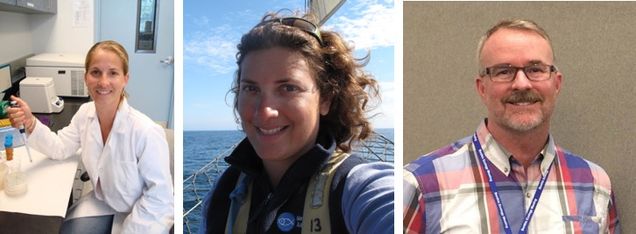The Temperate Coral Research Group

Temperate Corals as Useful Experimental Systems
Along with collaborators from over fifteen institutions around the United States, the Temperate Coral Research Group is a growing network of researchers who are actively engaged in research on temperate corals, including Astrangia poculata and Oculina arbuscula, and working toward the common goal of using temperate corals to investigate the physiology, ecology, genetics, and symbiosis involved in coral response to environmental change. Together, this network has ongoing productive research collaborations and is working to develop materials for education, outreach, and media efforts so that we may deepen our understanding of coral health and resilience in the face of global climate change.
SAVE THE DATE!!
2024 TEMPERATE CORAL RESEARCH CONFERENCE
ROGER WILLIAMS UNIVERSITY, BRISTOL, RI
MAY 29-30, 2024
Check back at this website for more info soon!
Our regular conferences are funded by generous support from Roger Williams University, Boston University, and Southern Connecticut State University. The Temperate Coral Research Working Group is coordinated by Drs. Koty Sharp, Randi Rotjan, and Sean Grace.
Meet the Temperate Coral Workshop Co-organizers:

Dr. Koty Sharp is an Associate Professor in Biology & Marine Biology at Roger Williams University. Her research team studies the microbial ecology and chemical ecology of marine invertebrates, especially A. poculata.
Dr. Randi Rotjan is a Research Associate Professor of Biology at Boston University. Her research is centered on temperate and tropical corals as systems for studying symbiosis ecology and global change.
Dr. Sean Grace is Chairperson and Associate Professor of Biology at Southern Connecticut State University and the Co-Director for the Werth Center for Coastal and Marine Studies. His research lab focuses on the ecology of near-shore shallow-water marine invertebrate communities in coastal southern New England.
Interested in learning more, joining the research group, or attending the conferences? Please contact Koty Sharp for more information.